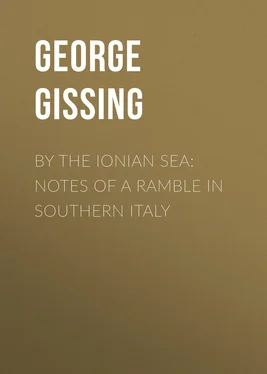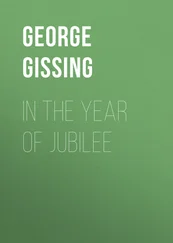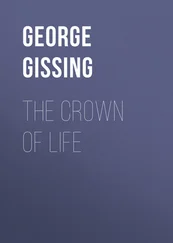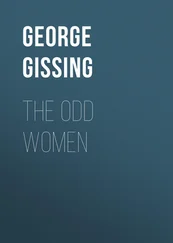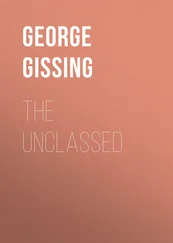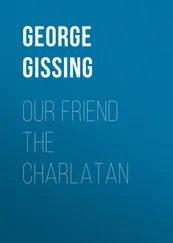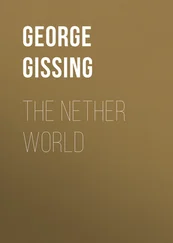George Gissing - By the Ionian Sea - Notes of a Ramble in Southern Italy
Здесь есть возможность читать онлайн «George Gissing - By the Ionian Sea - Notes of a Ramble in Southern Italy» — ознакомительный отрывок электронной книги совершенно бесплатно, а после прочтения отрывка купить полную версию. В некоторых случаях можно слушать аудио, скачать через торрент в формате fb2 и присутствует краткое содержание. Жанр: Путешествия и география, foreign_antique, на английском языке. Описание произведения, (предисловие) а так же отзывы посетителей доступны на портале библиотеки ЛибКат.
- Название:By the Ionian Sea: Notes of a Ramble in Southern Italy
- Автор:
- Жанр:
- Год:неизвестен
- ISBN:нет данных
- Рейтинг книги:3 / 5. Голосов: 1
-
Избранное:Добавить в избранное
- Отзывы:
-
Ваша оценка:
- 60
- 1
- 2
- 3
- 4
- 5
By the Ionian Sea: Notes of a Ramble in Southern Italy: краткое содержание, описание и аннотация
Предлагаем к чтению аннотацию, описание, краткое содержание или предисловие (зависит от того, что написал сам автор книги «By the Ionian Sea: Notes of a Ramble in Southern Italy»). Если вы не нашли необходимую информацию о книге — напишите в комментариях, мы постараемся отыскать её.
By the Ionian Sea: Notes of a Ramble in Southern Italy — читать онлайн ознакомительный отрывок
Ниже представлен текст книги, разбитый по страницам. Система сохранения места последней прочитанной страницы, позволяет с удобством читать онлайн бесплатно книгу «By the Ionian Sea: Notes of a Ramble in Southern Italy», без необходимости каждый раз заново искать на чём Вы остановились. Поставьте закладку, и сможете в любой момент перейти на страницу, на которой закончили чтение.
Интервал:
Закладка:
George Gissing
By the Ionian Sea: Notes of a Ramble in Southern Italy
CHAPTER I
FROM NAPLES
This is the third day of sirocco, heavy-clouded, sunless. All the colour has gone out of Naples; the streets are dusty and stifling. I long for the mountains and the sea.
To-morrow I shall leave by the Messina boat, which calls at Paola. It is now more than a twelvemonth since I began to think of Paola, and an image of the place has grown in my mind. I picture a little marina ; a yellowish little town just above; and behind, rising grandly, the long range of mountains which guard the shore of Calabria. Paola has no special interest that I know of, but it is the nearest point on the coast to Cosenza, which has interest in abundance; by landing here I make a modestly adventurous beginning of my ramble in the South. At Paola foreigners are rare; one may count upon new impressions, and the journey over the hills will be delightful.
Were I to lend ear to the people with whom I am staying, here in the Chiatamone, I should either abandon my project altogether or set forth with dire misgivings. They are Neapolitans of the better class; that is to say, they have known losses, and talk of their former happiness, when they lived on the Chiaia and had everything handsome about them. The head of the family strikes me as a typical figure; he is an elderly man, with a fine head, a dignified presence, and a coldly courteous demeanour. By preference he speaks French, and his favourite subject is Paris. One observes in him something like disdain for his own country, which in his mind is associated only with falling fortunes and loss of self-respect. The cordial Italian note never sounds in his talk. The signora (also a little ashamed of her own language) excites herself about taxation—as well she may—and dwells with doleful vivacity on family troubles. Both are astonished at my eccentricity and hardiness in undertaking a solitary journey through the wild South. Their geographical notions are vague; they have barely heard of Cosenza or of Cotrone, and of Paola not at all; it would as soon occur to them to set out for Morocco as for Calabria. How shall I get along with people whose language is a barbarous dialect? Am I aware that the country is in great part pestilential?— la febbre ! Has no one informed me that in autumn snows descend, and bury everything for months? It is useless to explain that I only intend to visit places easily accessible, that I shall travel mostly by railway, and that if disagreeable weather sets in I shall quickly return northwards. They look at me dubiously, and ask themselves (I am sure) whether I have not some more tangible motive than a lover of classical antiquity. It ends with a compliment to the enterprising spirit of the English race.
I have purchases to make, business to settle, and I must go hither and thither about the town. Sirocco, of course, dusks everything to cheerless grey, but under any sky it is dispiriting to note the changes in Naples. Lo sventramento (the disembowelling) goes on, and regions are transformed. It is a good thing, I suppose, that the broad Corso Umberto I. should cut a way through the old Pendino; but what a contrast between that native picturesqueness and the cosmopolitan vulgarity which has usurped its place! " Napoli se ne va !" I pass the Santa Lucia with downcast eyes, my memories of ten years ago striving against the dulness of to-day. The harbour, whence one used to start for Capri, is filled up; the sea has been driven to a hopeless distance beyond a wilderness of dust-heaps. They are going to make a long, straight embankment from the Castel dell'Ovo to the Great Port, and before long the Santa Lucia will be an ordinary street, shut in among huge houses, with no view at all. Ah, the nights that one lingered here, watching the crimson glow upon Vesuvius, tracing the dark line of the Sorrento promontory, or waiting for moonlight to cast its magic upon floating Capri! The odours remain; the stalls of sea-fruit are as yet undisturbed, and the jars of the water-sellers; women still comb and bind each other's hair by the wayside, and meals are cooked and eaten al fresco as of old. But one can see these things elsewhere, and Santa Lucia was unique. It has become squalid. In the grey light of this sad billowy sky, only its ancient foulness is manifest; there needs the golden sunlight to bring out a suggestion of its ancient charm.
Has Naples grown less noisy, or does it only seem so to me? The men with bullock carts are strangely quiet; their shouts have nothing like the frequency and spirit of former days. In the narrow and thronged Strada di Chiaia I find little tumult; it used to be deafening. Ten years ago a foreigner could not walk here without being assailed by the clamour of cocchieri ; nay, he was pursued from street to street, until the driver had spent every phrase of importunate invitation; now, one may saunter as one will, with little disturbance. Down on the Piliero, whither I have been to take my passage for Paola, I catch but an echo of the jubilant uproar which used to amaze me. Is Naples really so much quieter? If I had time I would go out to Fuorigrotta, once, it seemed to me, the noisiest village on earth, and see if there also I observed a change. It would not be surprising if the modernization of the city, together with the state of things throughout Italy, had a subduing effect upon Neapolitan manners. In one respect the streets are assuredly less gay. When I first knew Naples one was never, literally never, out of hearing of a hand-organ; and these organs, which in general had a peculiarly dulcet note, played the brightest of melodies; trivial, vulgar if you will, but none the less melodious, and dear to Naples. Now the sound of street music is rare, and I understand that some police provision long since interfered with the soft-tongued instruments. I miss them; for, in the matter of music, it is with me as with Sir Thomas Browne. For Italy the change is significant enough; in a few more years spontaneous melody will be as rare at Naples or Venice as on the banks of the Thames.
Happily, the musicians errant still strum their mandoline as you dine. The old trattoria in the Toledo is as good as ever, as bright, as comfortable. I have found my old corner in one of the little rooms, and something of the old gusto for zuppa di vongole . The homely wine of Posillipo smacks as in days gone by, and is commended to one's lips by a song of the South. . . .
Last night the wind changed and the sky began to clear; this morning I awoke in sunshine, and with a feeling of eagerness for my journey. I shall look upon the Ionian Sea, not merely from a train or a steamboat as before, but at long leisure: I shall see the shores where once were Tarentum and Sybaris, Croton and Locri. Every man has his intellectual desire; mine is to escape life as I know it and dream myself into that old world which was the imaginative delight of my boyhood. The names of Greece and Italy draw me as no others; they make me young again, and restore the keen impressions of that time when every new page of Greek or Latin was a new perception of things beautiful. The world of the Greeks and Romans is my land of romance; a quotation in either language thrills me strangely, and there are passages of Greek and Latin verse which I cannot read without a dimming of the eyes, which I cannot repeat aloud because my voice fails me. In Magna Graecia the waters of two fountains mingle and flow together; how exquisite will be the draught!
I drove with my luggage to the Immacolatella, and a boatman put me aboard the steamer. Luggage, I say advisedly; it is a rather heavy portmanteau, and I know it will be a nuisance. But the length of my wanderings is so uncertain, its conditions are so vaguely anticipated. I must have books if only for rainy days; I must have clothing against a change of season. At one time I thought of taking a mere wallet, and now I am half sorry that I altered my mind. But–
Читать дальшеИнтервал:
Закладка:
Похожие книги на «By the Ionian Sea: Notes of a Ramble in Southern Italy»
Представляем Вашему вниманию похожие книги на «By the Ionian Sea: Notes of a Ramble in Southern Italy» списком для выбора. Мы отобрали схожую по названию и смыслу литературу в надежде предоставить читателям больше вариантов отыскать новые, интересные, ещё непрочитанные произведения.
Обсуждение, отзывы о книге «By the Ionian Sea: Notes of a Ramble in Southern Italy» и просто собственные мнения читателей. Оставьте ваши комментарии, напишите, что Вы думаете о произведении, его смысле или главных героях. Укажите что конкретно понравилось, а что нет, и почему Вы так считаете.
